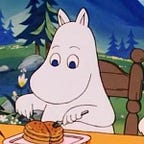I’ll have one cup, to go
Almost every piece of culture that centers around time travel typically has one golden rule: don’t mess with time travel.
Time is a universal experience because it moves at the exact same pace; a day is always 24 hours (give or take) for everyone. However, through our own individual perceptions, periods of time never move at the same pace. A day, for example, can go by slowly for some people but faster for others, and then on other days it switches.
Time becomes subjective because it is inevitably tied to our experiences. Time keeps moving, so we are always spending our time. It also moves without our consent, so we are bound to move at different speeds than it is, sometimes. In those times, we are forced to either run and keep up with it, or stay still while we wait for it to catch up to us. During this journey through time, we are also bound to make choices or act upon things in a way that, when we look back, don’t reflect us best.
Humans are “animals of regret”, after all.
It’s just a matter of what kind of regret differentiates us from each other. Regret that comes from the words we said, or the ones we didn’t say? Regret from living a certain way, or from not taking chances?
“What if I had kept going?”, “what if I made a different choice?”, “what if I ran away from that situation sooner?”
Well… what if you could answer those suffering questions?
Toshikazu Kawaguchi’s Before the Coffee Gets Cold ventures into that possibility. Through an interweaving series of stories, we meet a cast of characters: customers, passerbys, and staff of an old, underground coffee shop in Tokyo, Japan. (When I said underground, I actually meant it’s under the ground).
The special twist: The coffee shop allows you to travel through time. That is, if the person would sit in a certain chair, at a certain time of day, following an intricate amount of rules, and… they must do what they need to do and go back to the present before their coffee gets cold.
The concept of the story itself was very interesting to me. The premise teases stories not of heroes going back in time to stop a catastrophic event, but those of ordinary people, who are desperate, longing, and willing to take the risk.
And while the idea seemed promising, at certain points, the execution seemed to lack. I was struggling to warm up to the story, especially in the first chapter, when the author was still trying to set the scene of the book. But eventually, it became more welcoming, although some stories still felt a little rushed.
In the end, the connections between the stories of the different characters played the biggest part in creating the charm, in my opinion. One thing I would say, though, is that the tone and ~vibe~ of the book were not what I initially expected from it.
But, an equally (or more) interesting aspect is that the book also explores the theme of regret, the one I mentioned earlier, in a unique way. See, one of the rules of the coffee shop’s time travel service is that whatever the person does during their time in the past or future, the present will not change. No amount of hard or clever effort would make an ounce of difference.
So it does pose the question: how much hopefulness or hopelessness does it take for people to be willing to re-experience a time (or experience a future that they don’t know), only for the sake of that experience, and not the aftermath? Will that be enough to salvage their feelings of regret and longing?
